
Confirmation Bias
Letting Your Desires Control What You See!
Principal Category: Cognitive Biases & Psychological Heuristics
Author:
• Tim McGuinness, Ph.D., DFin, MCPO, MAnth – Anthropologist, Scientist, Polymath, Director of the Society of Citizens Against Relationship Scams Inc.
Abstract
Scam victims are not only deceived by external manipulation but also by internal cognitive patterns, such as Confirmation Bias, that make the deception more believable. One of the most powerful influences is confirmation bias—the tendency to favor information that supports existing beliefs while disregarding evidence to the contrary. When victims emotionally commit to the belief that a relationship or opportunity is real, this bias reinforces the illusion and sustains it over time.
Confirmation Bias contributes to the progression of a scam and how it affects thinking during recovery. It addresses related cognitive distortions such as belief perseverance, irrational primacy, and self-deception. Victims may struggle to accept contradictory evidence or to recognize emotional reasoning in their own thought processes. The article outlines the roles of deductive, inductive, and abductive reasoning, showing how each plays into how victims evaluate information.
Understanding these mechanisms is critical to recovery. When victims recognize the psychological forces that shaped their experience, they gain tools to rebuild confidence, improve decision-making, and prevent future harm. This level of insight does not assign blame. It builds clarity and equips victims with the psychological framework needed to move forward with greater awareness and strength.

In the Case of Confirmation Bias, Your Psychology Works Against You and Most People Tend to See What They Want to See!
Scam Victims are Expertly Manipulated using their Own Confirmation Bias during Their Romance Scam (and Other Types of Scams too), but Their Own Psychology Actively Contributes to Its Success!
Confirmation Bias is one of the factors that contributes to both the initial hook and the continuation of the scam is the victim’s own psychology. Each of us experiences the world subjectively based upon what we believe to be true.
This is called “Confirmation Bias.”
con·fir·ma·tion bi·as
the tendency to interpret new evidence as confirmation of one’s existing beliefs or theories.
Confirmation Bias
Confirmation bias is the tendency to search for, interpret, favor, and recall information in a way that confirms or strengthens one’s prior personal beliefs or hypotheses. It is a type of cognitive bias. People display this bias when they gather or remember information selectively, or when they interpret it in a biased way. The effect is stronger for desired outcomes, for emotionally charged issues, and for deeply-entrenched beliefs.
In other words, once you BELIEVE you are in a relationship, a scammer is able to rely on your own Confirmation Bias to help sustain the relationship because the victim believes it is real!
People also tend to interpret ambiguous evidence as supporting their existing position. Biased search, interpretation, and memory have been invoked to explain:
- Attitude polarization (when a disagreement becomes more extreme even though the different parties are exposed to the same evidence)
- Belief perseverance (when beliefs persist after the evidence for them is shown to be false)
- Irrational primacy effect (a greater reliance on information encountered early in a series)
- Illusory correlation (when people falsely perceive an association between two events or situations)
All of these contribute to the continuation and maintenance of the scam AND facilitate the “gaslighting” that scammers use to isolate their victims.
A Definition
Confirmation bias has also been called confirmatory bias or myside bias.
Confirmation bias is an example of cognitive bias, and also of apophenia – the general tendency to mistakenly perceive connections and meaning between unrelated things.
Confirmation biases are effects in information processing. They differ from what is sometimes called the behavioral confirmation effect, commonly known as a self-fulfilling prophecy, in which a person’s expectations influence their own behavior, bringing about the expected result.
Some psychologists restrict the term confirmation bias to a selective collection of evidence that supports what one already believes while ignoring or rejecting evidence that supports a different conclusion. Others apply the term more broadly to the tendency to preserve one’s existing beliefs when searching for evidence, interpreting it, or recalling it from memory.
Background
A series of psychological experiments in the 1960s suggested that people are biased toward confirming their existing beliefs. Later work re-interpreted these results as a tendency to test ideas in a one-sided way, focusing on one possibility and ignoring alternatives. In certain situations, this tendency can bias people’s conclusions. Explanations for the observed biases include wishful thinking and the limited human capacity to process information. Another explanation is that people show confirmation bias because they are weighing up the costs of being wrong, rather than investigating in a neutral, scientific way. However, even scientists and intelligent people can be prone to confirmation bias.
Confirmation biases contribute to overconfidence in personal beliefs and can maintain or strengthen beliefs in the face of contrary evidence. Poor decisions due to these biases have been found in political, organizational, and scientific contexts. For example, confirmation bias produces systematic errors in research based on inductive reasoning.
Make-Believe Explanation
Developmental psychologist Eve Whitmore has argued that beliefs and biases involved in confirmation bias have their roots in childhood coping through make-believe, which becomes:
“the basis for more complex forms of self-deception and illusion into adulthood.”
The friction brought on by questioning as an adolescent with developing critical thinking can lead to the rationalization of false beliefs, and the habit of such rationalization can become unconscious over the years.
Individual Differences
“Myside bias,” also known as Confirmation Bias, was once believed to be correlated with intelligence; however, studies have shown that myside bias can be more influenced by the ability to rationally think as opposed to the level of intelligence. Myside bias can cause an inability to effectively and logically evaluate the opposite side of an argument. Studies have stated that myside bias is an absence of “active open-mindedness”, meaning the active search for why an initial idea may be wrong.
Typically, myside bias is operationalized in empirical studies as the quantity of evidence used in support of their side in comparison to the opposite side.
A study has found individual differences in myside or confirmational bias. A study investigated individual differences that are acquired through learning in a cultural context and are mutable. The researcher found an important individual difference in argumentation. Studies have suggested that individual differences such as:
-
- Deductive reasoning ability – (see below)
- Ability to overcome belief bias
- Epistemological understanding – the cognitive and intellectual functioning of an individual is significantly determined by his or her views on what knowledge is and how it is evaluated and acquired. These individual conceptions of knowledge and knowing determine one’s level of epistemological understanding. It is a process that starts with radical objectivism (knowledge as a certain and objective entity), leading through subjectivism, to an integration of both dimensions (allowing for uncertainty and the possibility to evaluate beliefs).
- Thinking disposition – a tendency toward a particular pattern of intellectual behavior. For example, good thinkers have the tendency to identify and investigate problems, to probe assumptions, to seek reasons, and to be reflective.
Those are significant predictors of the reasoning and generating arguments, counterarguments, and rebuttals.
A study by Christopher Wolfe and Anne Britt also investigated how participants’ views of “what makes a good argument?” can be a source of confirmational bias that influences the way a person formulates their own arguments (opinions or views). The study investigated individual differences of “argumentation schema” (an approach that allows someone to see the elements that conform an argument, including all the relationships between the parts) and asked participants to write essays. The participants were randomly assigned to write essays either for or against their preferred side of an argument and were given research instructions that took either a balanced or an unrestricted approach. The balanced-research instructions directed participants to create a “balanced” argument, i.e., that included both pros and cons; the unrestricted-research instructions included nothing on how to create the argument.
We see this substantially when asking scam victims to look at potential fake scammer profiles. Most of the time they are unable to break it down and identify the true facts, but instead still rely on their confirmational bias – now altered – to simply declare it a scammer.
Overall, the results revealed that the balanced-thinking significantly increased the incidence of opposing information in arguments. These also reveal that personal belief is not a source of confirmational bias; however, those participants who believe that a good argument is one that is based on facts, are more likely to exhibit this bias than other participants. This evidence is consistent with the claims proposed in Baron’s article—that people’s opinions about what makes good thinking can influence how arguments are generated. In other words, their opinions about their own thinking influence their thinking!
According to Shahram Heshmat Ph.D.:
Confirmation bias occurs from the direct influence of desire on beliefs. When people would like a certain idea or concept to be true, they end up believing it to be true. They are motivated by wishful thinking. This error leads the individual to stop gathering information when the evidence gathered so far confirms the views or prejudices one would like to be true.
Once we have formed a view, we embrace information that confirms that view while ignoring, or rejecting, information that casts doubt on it. Confirmation bias suggests that we don’t perceive circumstances objectively. We pick out those bits of data that make us feel good because they confirm our prejudices. Thus, we may become prisoners of our assumptions. For example, some people will have a very strong inclination to dismiss any claims that marijuana may cause harm as nothing more than old-fashioned reefer madness. Some social conservatives will downplay any evidence that marijuana does not cause harm.
Wishful thinking is a form of self-deception, such as false optimism. For example, we often deceive ourselves, such as stating: just this one; it’s not that fattening; I’ll stop smoking tomorrow. Or when someone is “under the influence” he feels confident that he can drive safely even after three or more drinks.
Self-deception can be like a drug, numbing you from harsh reality or turning a blind eye to the tough matter of gathering evidence and thinking. As Voltaire commented long ago, “Illusion is the first of all pleasure.” In some cases, self-deception is good for us. For example, when dealing with certain illnesses, positive thinking may actually be beneficial for diseases such as cancer, but not diabetes or ulcers. There is limited evidence that believing that you will recover helps reduce your level of stress hormones, giving the immune system and modern medicine a better chance to do their work.
In sum, people are prone to believe what they want to believe. Seeking to confirm our beliefs comes naturally, while it feels strong and counterintuitive to look for evidence that contradicts our beliefs. This explains why opinions survive and spread. Disconfirming instances are far more powerful in establishing the truth. Disconfirmation would require looking for evidence to disprove it.
To learn more about Confirmation Bias see: https://en.wikipedia.org/wiki/Confirmation_bias
Reasoning
Deductive Reasoning
Deductive reasoning is a basic form of valid reasoning. Deductive reasoning, or deduction, starts out with a general statement, or hypothesis, and examines the possibilities to reach a specific, logical conclusion, according to California State University. The scientific method uses deduction to test hypotheses and theories.
“In deductive inference, we hold a theory and based on it we make a prediction of its consequences. That is, we predict what the observations should be if the theory were correct. We go from the general — the theory — to the specific — the observations,” said Dr. Sylvia Wassertheil-Smoller, a researcher and professor emerita at Albert Einstein College of Medicine.
Deductive reasoning usually follows steps. First, there is a premise, then a second premise, and finally an inference. A common form of deductive reasoning is syllogism, in which two statements — a major premise and a minor premise — reach a logical conclusion. For example, the premise “Every A is B” could be followed by another premise, “This C is A.” Those statements would lead to the conclusion “This C is B.” Syllogisms are considered a good way to test deductive reasoning to make sure the argument is valid.
For example, “All men are mortal. Harold is a man. Therefore, Harold is mortal.” For deductive reasoning to be sound, the hypothesis must be correct. It is assumed that the premises, “All men are mortal” and “Harold is a man,” are true. Therefore, the conclusion is logical and true. In deductive reasoning, if something is true of a class of things in general, it is also true for all members of that class.
According to California State University, deductive inference conclusions are certainly provided that the premises are true. It’s possible to come to a logical conclusion even if the generalization is not true. If the generalization is wrong, the conclusion may be logical, but it may also be untrue. For example, the argument, “All bald men are grandfathers. Harold is bald. Therefore, Harold is a grandfather,” is valid logically, but it is untrue because the original statement is false.
Inductive Reasoning
Inductive reasoning is the opposite of deductive reasoning. Inductive reasoning makes broad generalizations from specific observations. Basically, there is data, then conclusions are drawn from the data. This is called inductive logic, according to Utah State University.
“In inductive inference, we go from the specific to the general. We make many observations, discern a pattern, make a generalization, and infer an explanation or a theory,” Wassertheil-Smoller told Live Science. “In science, there is a constant interplay between inductive inference (based on observations) and deductive inference (based on theory), until we get closer and closer to the ‘truth,’ which we can only approach but not ascertain with complete certainty.”
An example of inductive logic is, “The coin I pulled from the bag is a penny. That coin is a penny. A third coin from the bag is a penny. Therefore, all the coins in the bag are pennies.”
Even if all of the premises are true in a statement, inductive reasoning allows for the conclusion to be false. Here’s an example: “Harold is a grandfather. Harold is bald. Therefore, all grandfathers are bald.” The conclusion does not follow logically from the statements.
Inductive reasoning has its place in the scientific method and is heavily used in daily life. Scientists use it to form hypotheses and theories. Deductive reasoning allows them to apply the theories to specific situations.
Abductive Reasoning
Another form of scientific reasoning that doesn’t fit in with inductive or deductive reasoning is abductive. Abductive reasoning usually starts with an incomplete set of observations and proceeds to the likeliest possible explanation for the group of observations, according to Butte College. It is based on making and testing hypotheses using the best information available. It often entails making an educated guess after observing a phenomenon for which there is no clear explanation.
This is where the scam victim uses reasoning to decide that a scammer is real. And then the manipulation and confirmation bias does the rest!
For example, a person walks into their living room and finds torn-up papers all over the floor. The person’s dog has been alone in the room all day. The person concludes that the dog tore up the papers because it is the most likely scenario. Now, the person’s sister may have brought his niece and she may have torn up the papers, or it may have been done by the landlord, but the dog theory is the more likely conclusion.
Abductive reasoning is useful for forming hypotheses to be tested. Abductive reasoning is often used by doctors who make a diagnosis based on test results and by jurors who make decisions based on the evidence presented to them.
Summary
Understanding confirmation bias is not optional for scam victims. It is essential. Victims must grasp how their own minds filtered the scam experience in ways that made the deception feel real. The scammer did not operate alone. The victim’s cognitive patterns helped reinforce the fantasy, the emotional trust, and the dismissal of red flags. This is not a personal flaw. It is how human psychology functions when emotional investment overrides rational analysis.
While victims cannot erase the memory of the scam, they can transform their understanding of it. Learning how confirmation bias operates allows individuals to recognize how future decisions may be shaped by emotional loyalty to false beliefs. This insight supports long-term recovery and builds resilience. The ability to question assumptions, seek out contradictory evidence, and slow emotional conclusions creates a solid foundation for critical reasoning.
Scammers depend on victims avoiding this kind of self-examination. They rely on confusion, reactivity, and regret. Victims who learn to think clearly, investigate thoughtfully, and reflect honestly are no longer easy targets. Recovery requires more than knowing what happened. It demands an understanding of how the mind made the experience feel true. That knowledge leads to empowerment and lasting psychological strength.
IMPORTANT NOTE: This article is intended to be an introductory overview of complex psychological, neurological, physiological, or other concepts, written primarily to help victims of crime understand the wide-ranging actual or potential effects of psychological trauma they may be experiencing. The goal is to provide clarity and validation for the confusing and often overwhelming symptoms that can follow a traumatic event. It is critical to understand that this content is for informational purposes only and does not constitute or is not a substitute for professional medical advice, diagnosis, or treatment. If you are experiencing distress or believe you are suffering from trauma or its effects, it is essential to consult with a qualified mental health professional for personalized care and support.

Welcome to the SCARS INSTITUTE Journal of Scam Psychology
A Journal of Applied Scam, Fraud, and Cybercrime Psychology – and Allied Sciences
A dedicated site for psychology, victimology, criminology, applied sociology and anthropology, and allied sciences, published by the SCARS INSTITUTE™ – Society of Citizens Against Relationship Scams Inc.
TABLE OF CONTENTS
A Question of Trust
At the SCARS Institute, we invite you to do your own research on the topics we speak about and publish, Our team investigates the subject being discussed, especially when it comes to understanding the scam victims-survivors experience. You can do Google searches but in many cases, you will have to wade through scientific papers and studies. However, remember that biases and perspectives matter and influence the outcome. Regardless, we encourage you to explore these topics as thoroughly as you can for your own awareness.
Please Leave A Comment
Recent Comments
On Other Articles
[better_recent_comments number=”5″ format=”{avatar} on {post}: “{comment}” {date}” avatar_size=”20″]
A Note About Labeling!
We often use the term ‘scam victim’ in our articles, but this is a convenience to help those searching for information in search engines like Google. It is just a convenience and has no deeper meaning. If you have come through such an experience, YOU are a Survivor! It was not your fault. You are not alone! Axios!
Statement About Victim Blaming
Some of our articles discuss various aspects of victims. This is both about better understanding victims (the science of victimology) and their behaviors and psychology. This helps us to educate victims/survivors about why these crimes happened and to not blame themselves, better develop recovery programs, and to help victims avoid scams in the future. At times this may sound like blaming the victim, but it does not blame scam victims, we are simply explaining the hows and whys of the experience victims have.
These articles, about the Psychology of Scams or Victim Psychology – meaning that all humans have psychological or cognitive characteristics in common that can either be exploited or work against us – help us all to understand the unique challenges victims face before, during, and after scams, fraud, or cybercrimes. These sometimes talk about some of the vulnerabilities the scammers exploit. Victims rarely have control of them or are even aware of them, until something like a scam happens and then they can learn how their mind works and how to overcome these mechanisms.
Articles like these help victims and others understand these processes and how to help prevent them from being exploited again or to help them recover more easily by understanding their post-scam behaviors. Learn more about the Psychology of Scams at www.ScamPsychology.org
Psychology Disclaimer:
All articles about psychology, neurology, and the human brain on this website are for information & education only
The information provided in these articles is intended for educational and self-help purposes only and should not be construed as a substitute for professional therapy or counseling.
While any self-help techniques outlined herein may be beneficial for scam victims seeking to recover from their experience and move towards recovery, it is important to consult with a qualified mental health professional before initiating any course of action. Each individual’s experience and needs are unique, and what works for one person may not be suitable for another.
Additionally, any approach may not be appropriate for individuals with certain pre-existing mental health conditions or trauma histories. It is advisable to seek guidance from a licensed therapist or counselor who can provide personalized support, guidance, and treatment tailored to your specific needs.
If you are experiencing significant distress or emotional difficulties related to a scam or other traumatic event, please consult your doctor or mental health provider for appropriate care and support.
Also, please read our SCARS Institute Statement About Professional Care for Scam Victims – here
If you are in crisis, feeling desperate, or in despair please call 988 or your local crisis hotline.
SCARS Institute Resources:
- If you are a victim of scams go to www.ScamVictimsSupport.org for real knowledge and help
- Enroll in SCARS Scam Survivor’s School now at www.SCARSeducation.org
- To report criminals visit https://reporting.AgainstScams.org – we will NEVER give your data to money recovery companies like some do!
- Sign up for our free support & recovery help by https://support.AgainstScams.org
- Follow us and Find our podcasts, webinars, and helpful videos on YouTube: https://www.youtube.com/@RomancescamsNowcom
- SCARS Institute Songs for Victim-Survivors: https://www.youtube.com/playlist…
- See SCARS Institute Scam Victim Self-Help Books at https://shop.AgainstScams.org
- Learn about the Psychology of Scams at www.ScamPsychology.org
- Dig deeper into the reality of scams, fraud, and cybercrime at www.ScamsNOW.com and www.RomanceScamsNOW.com
- Scam Survivor’s Stories: www.ScamSurvivorStories.org
- For Scam Victim Advocates visit www.ScamVictimsAdvocates.org
- See more scammer photos on www.ScammerPhotos.com


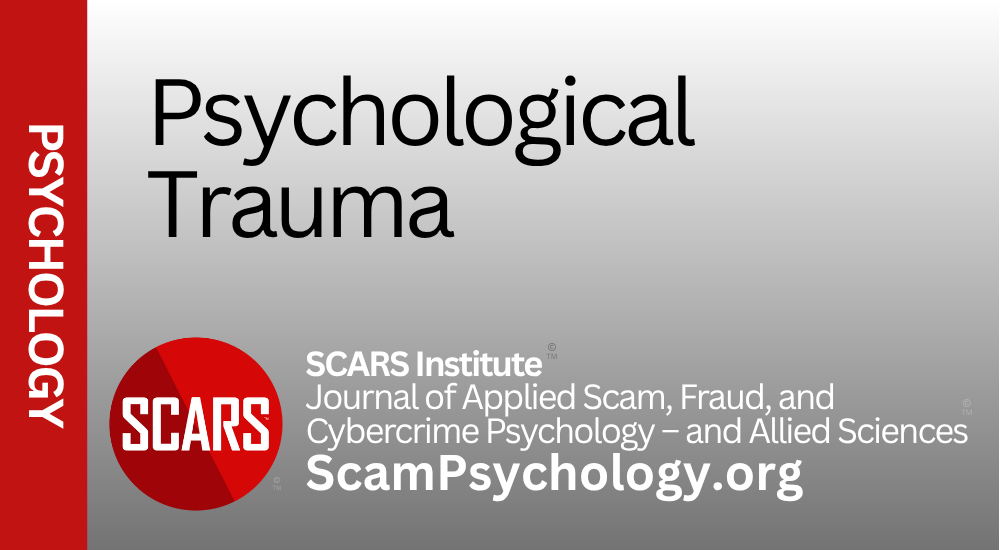
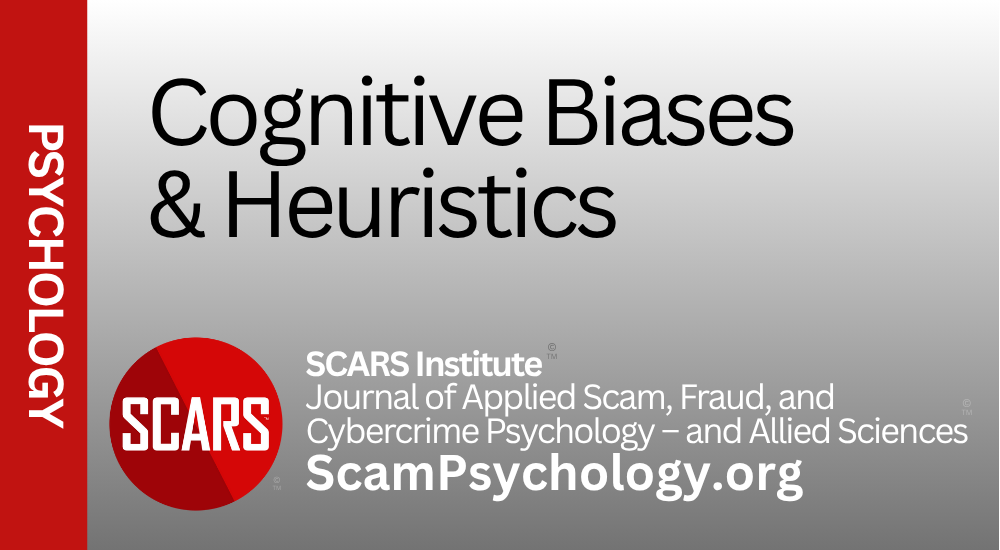
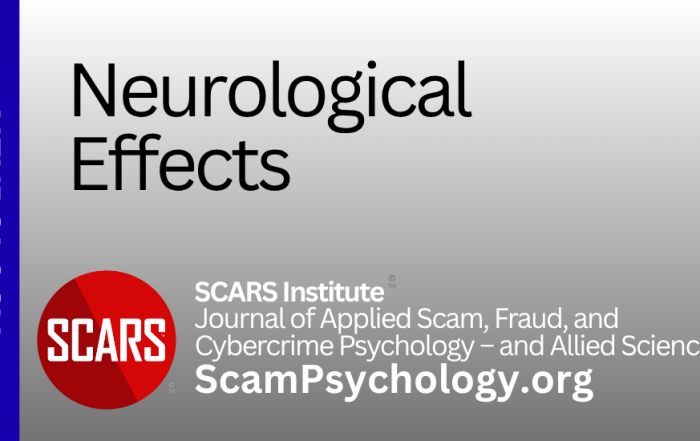

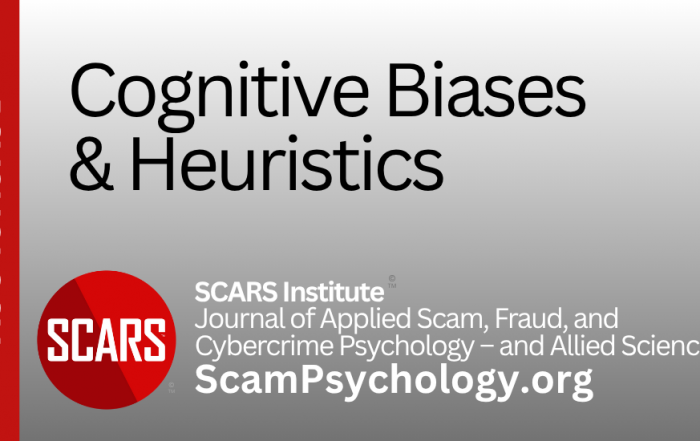
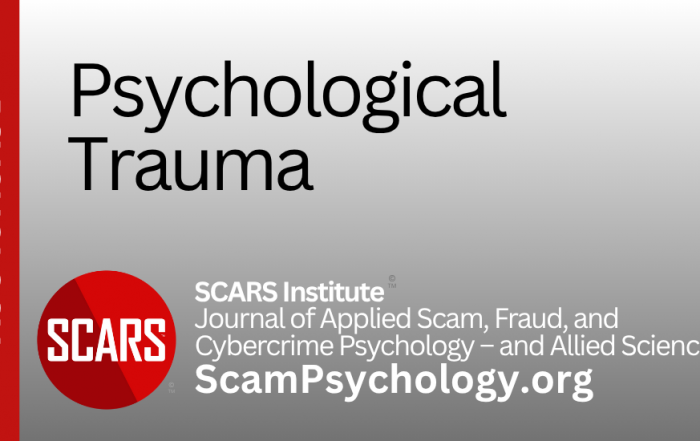
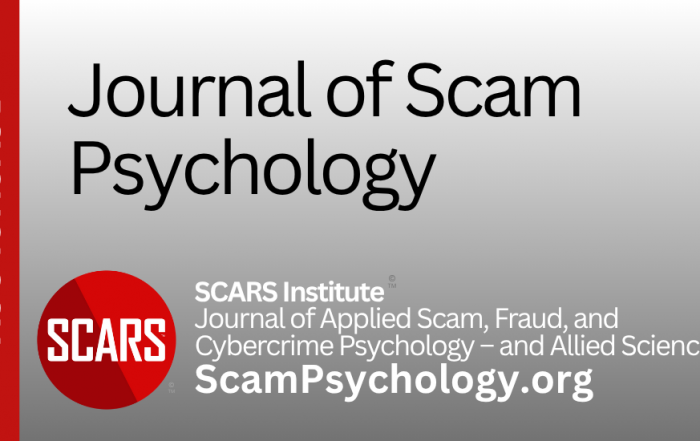
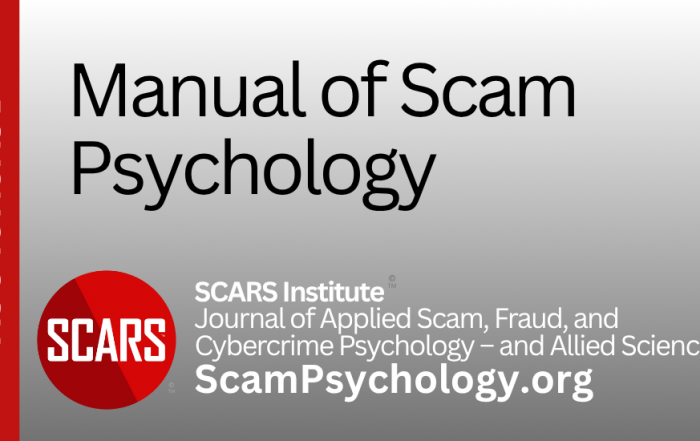

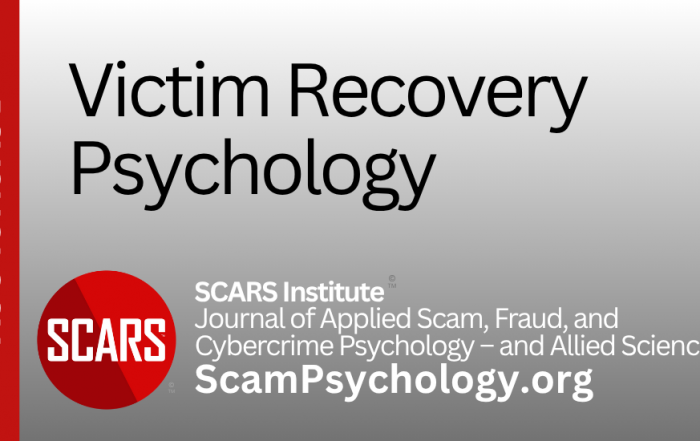
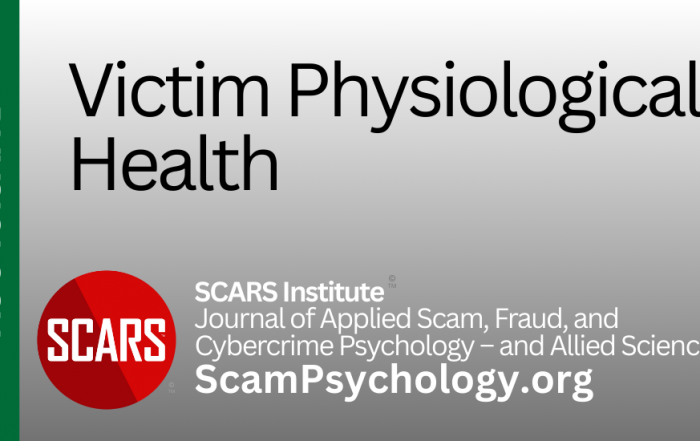

![niprc1.png1_-150×1501-11[1]](https://scampsychology.org/wp-content/uploads/2025/05/niprc1.png1_-150x1501-111.webp)